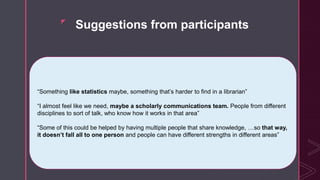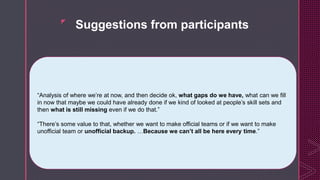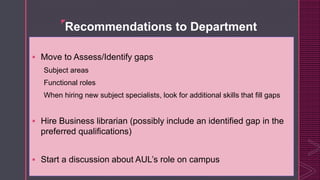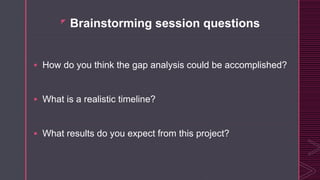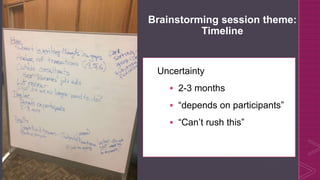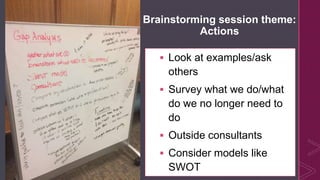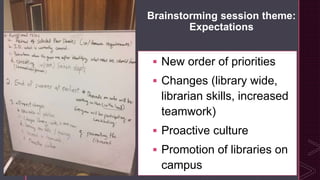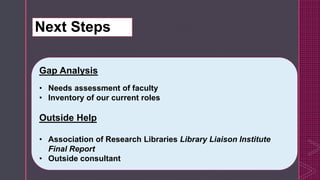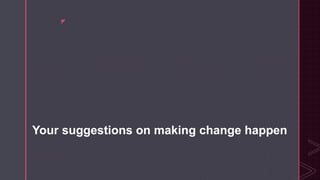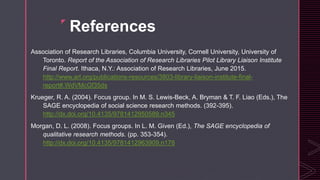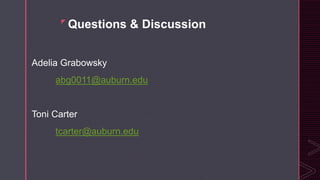The document presents a qualitative study on the evolving roles of librarians and changing user needs at Auburn University Libraries, highlighting themes such as the need for subject specialists, the importance of relationship building with faculty, and the emergence of overlapping services. The study includes insights gathered from focus group discussions among reference librarians, identifying gaps in subject areas and suggesting the development of resident experts and collaborative teams to address the challenges faced. It concludes with recommendations for hiring practices, skill assessments, and further discussion on the library's role on campus.
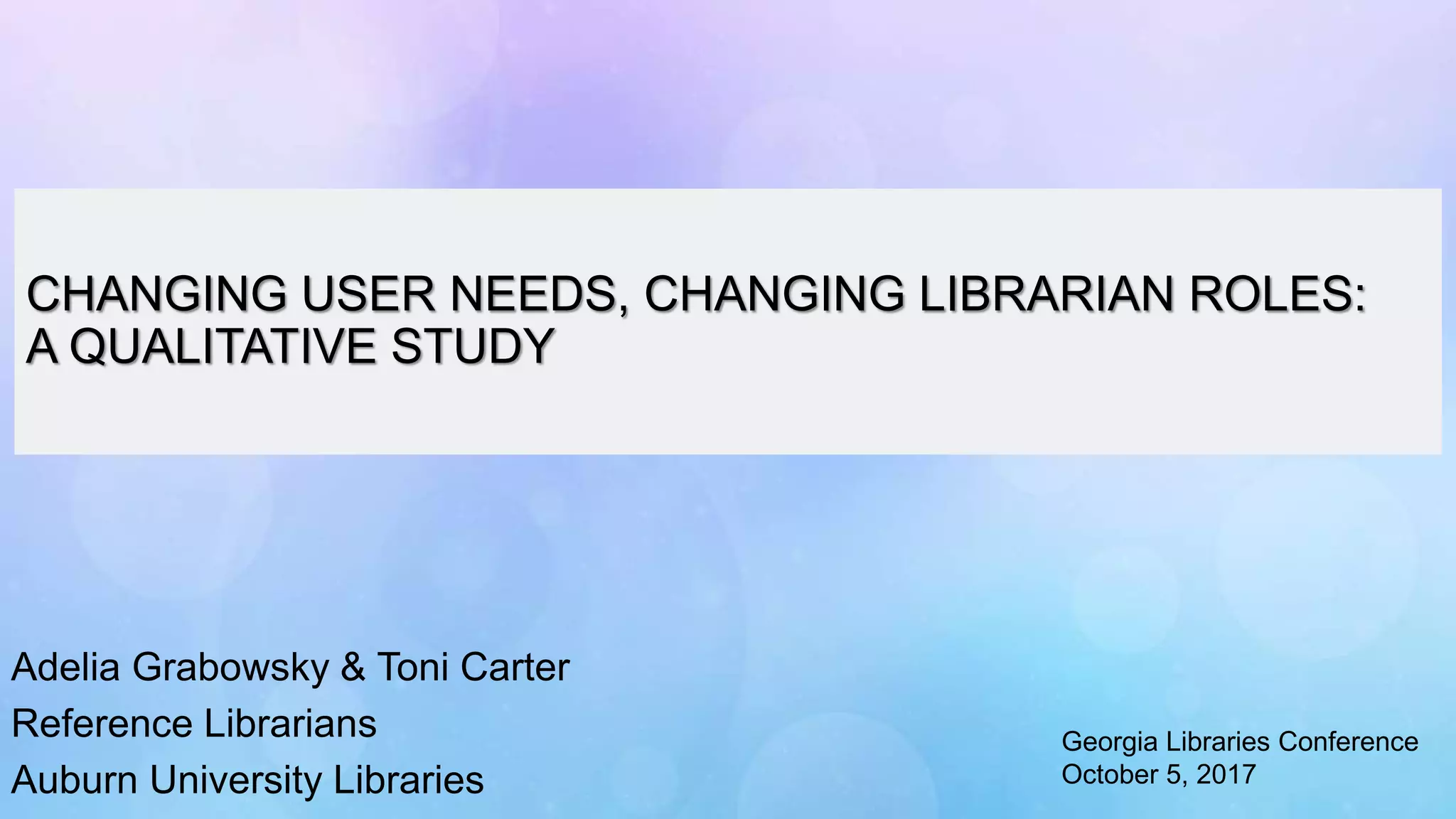
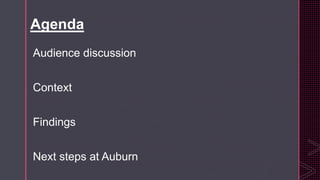
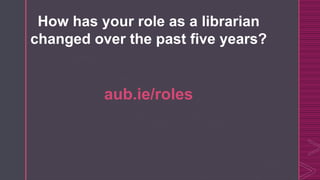
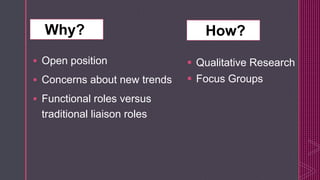
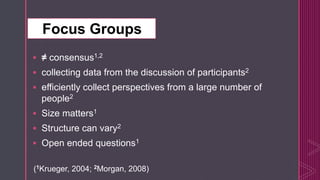
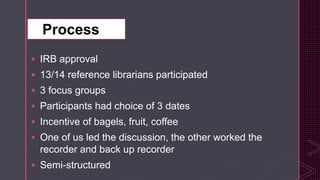
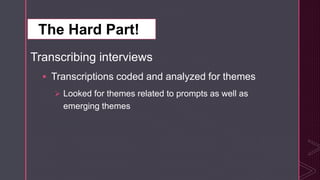
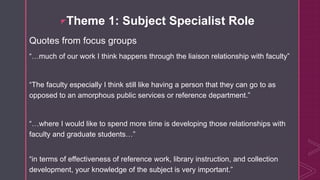
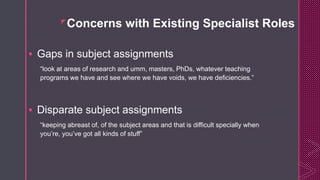
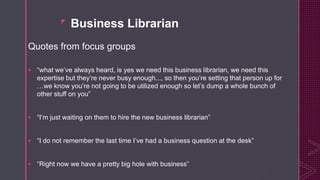
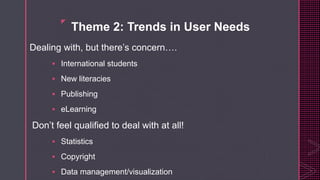
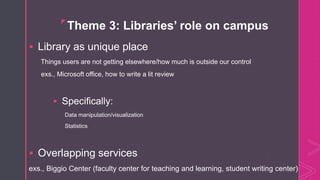
![z
Suggestions from participants
Consider developing Resident Experts, for ex. Statistics, data visualization
Retraining existing subject specialists
New subject specialist hires with needed skills
“it’s helpful to have sort of the resident expert, so like you can handle these basic level
things, but when it’s like I’m going to have to ask the person who knows more about this than I
do, instead of you being the person at the end of the line. You don’t feel like you are
capable or confident being the end of the line.”
“We need some sort of, like a mechanism, to be able to identify that these are the things
that [someone] is really good at, so things that require these types of skills, maybe we
should consider [that person] for this.”](https://image.slidesharecdn.com/glacartergrabowskyfall17-171025212216/85/Changing-User-Needs-Changing-Librarian-Roles-A-Qualitative-Study-13-320.jpg)
